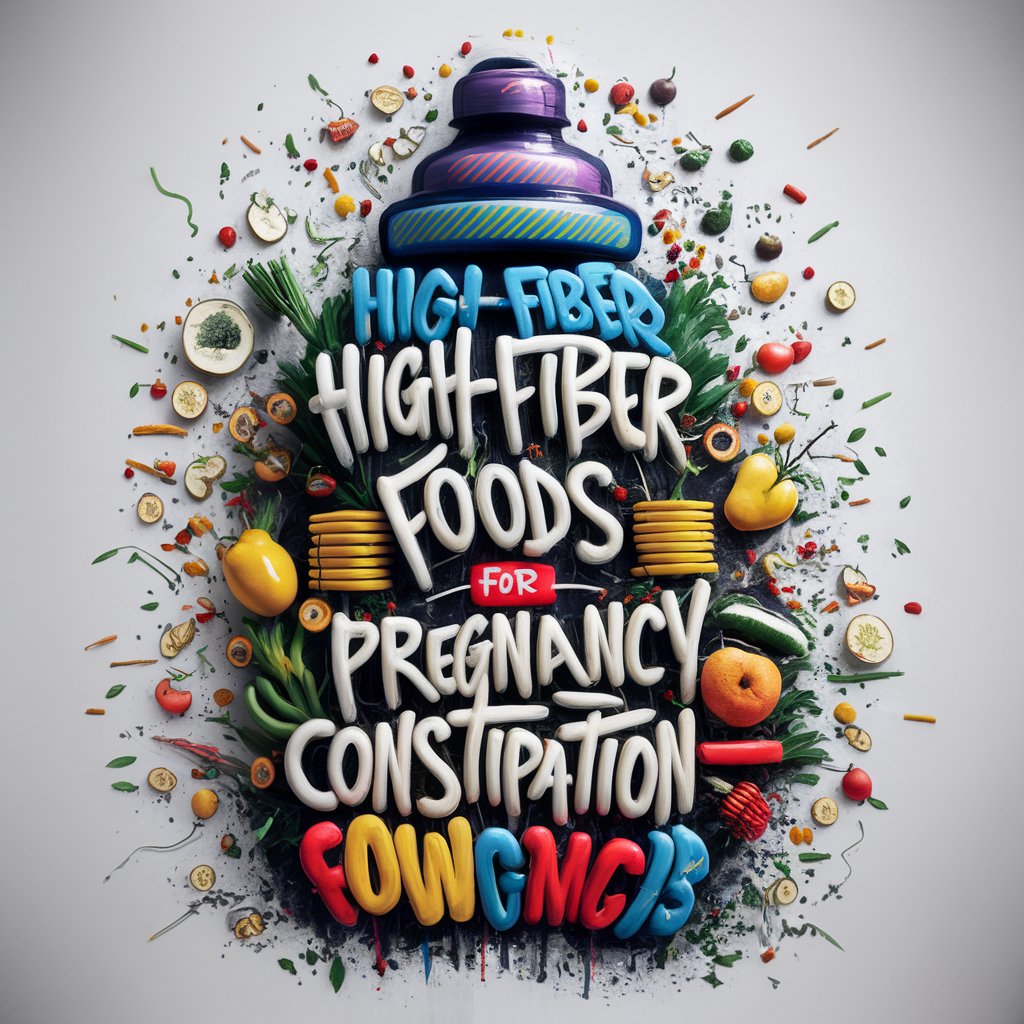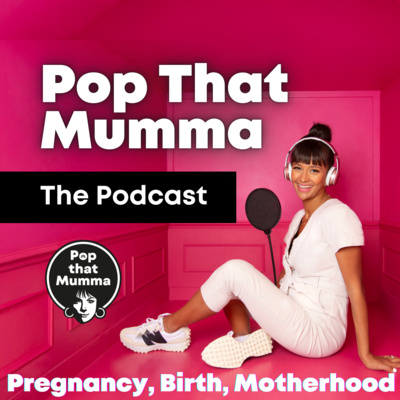
Introduction: High-Fiber Foods for Pregnancy Constipation
Pregnancy constipation affects 50-60% of expectant mothers, with symptoms ranging from mild discomfort to severe bowel obstructions. This comprehensive guide merges clinical research, nutritional science, and patient insights to provide actionable solutions. From hormonal mechanisms to meal plans and medical interventions, we address every facet of prenatal digestive health.
Why Pregnancy Causes Constipation
Hormonal Shifts: The Progesterone Effect
Progesterone levels surge by 300-400% during pregnancy, relaxing smooth muscles in the gastrointestinal tract. This slows bowel transit time from the typical 24-72 hours to 96+ hours, allowing maximum nutrient absorption but causing stool stagnation1.
- First Trimester: Progesterone rises from 10 ng/mL to 40 ng/mL, correlating with early constipation spikes.
- Third Trimester: Uterine pressure reduces colonic lumen diameter by 30%, compounding symptoms.
Iron Supplements: A Double-Edged Sword
Prenatal vitamins often contain 27 mg of elemental iron, but ferrous sulfate formulations (common in supplements) increase constipation risk by 47% compared to food-based iron:
| Iron Source | Absorption Rate | Constipation Risk |
|---|---|---|
| Ferrous Sulfate | 10-15% | High |
| Ferrous Bisglycinate | 20-25% | Moderate |
| Heme Iron (Red Meat) | 15-35% | Low |
Solution: Pair iron with 100 mg vitamin C (e.g., bell peppers, oranges) to enhance absorption, allowing lower doses.
Fiber Science & Optimization
Soluble vs. Insoluble Fiber
| Fiber Type | Role in Pregnancy | Top Sources | Daily Target |
|---|---|---|---|
| Soluble | Softens stools, feeds gut flora | Oats, chia, apples | 8-10g |
| Insoluble | Speeds transit, adds bulk | Brown rice, kale | 15-20g |
Clinical Recommendation: Aim for 25-35g total fiber/day (70% insoluble + 30% soluble) for optimal bowel function.
The Physiological Landscape of Pregnancy Constipation
To understand why constipation is so prevalent during pregnancy, it’s essential to examine the physiological changes that occur:
- Hormonal Influence: Progesterone, a hormone that plays a vital role in maintaining pregnancy, relaxes the smooth muscles throughout the body. This relaxation extends to the intestinal muscles, slowing down peristalsis, the rhythmic contractions that propel food through the digestive tract.
- Uterine Compression: As the uterus expands to accommodate the growing fetus, it exerts pressure on the intestines. This physical compression further impedes the movement of stool, contributing to constipation.
- Iron Supplementation: Iron is crucial for preventing anemia during pregnancy. However, iron supplements can have a drying effect on the stool, making it harder to pass.
- Reduced Physical Activity: Fatigue and discomfort during pregnancy can lead to decreased physical activity, which can also contribute to sluggish digestion.
- Dietary Changes: Some women experience changes in appetite and food preferences during pregnancy, which may lead to a decrease in fiber intake.
The Indispensable Role of Fiber in Pregnancy Health
Fiber, a type of carbohydrate that the body cannot digest, plays a pivotal role in maintaining digestive health and overall well-being. During pregnancy, its benefits are particularly significant:
- Relief from Constipation: Fiber adds bulk to the stool, making it softer and easier to pass. It also promotes regular bowel movements, preventing straining and discomfort.
- Blood Sugar Regulation: Fiber slows down the absorption of sugar into the bloodstream, helping to regulate blood sugar levels and reduce the risk of gestational diabetes.
- Cardiovascular Health: Soluble fiber, found in foods like oats and apples, can help lower cholesterol levels, promoting heart health.
- Weight Management: Fiber-rich foods are generally lower in calories and more filling, helping to maintain a healthy weight during pregnancy.
- Gut Microbiome Support: Fiber acts as a prebiotic, nourishing beneficial gut bacteria, which play a crucial role in immune function, digestion, and overall health.
A Culinary Journey Through High-Fiber Foods
Incorporating a variety of high-fiber foods into your diet is the most natural and effective way to combat pregnancy constipation. Here’s a comprehensive list of fiber-rich options:
Fruits:
- Prunes: Renowned for their laxative properties, prunes are rich in fiber and sorbitol, a natural sugar alcohol that softens stool.
- Pears: With their edible skin, pears provide a significant amount of fiber, as well as pectin, a soluble fiber that promotes regularity.
- Apples: Another fruit with edible skin, apples offer a good dose of fiber and antioxidants.
- Berries (raspberries, blueberries, blackberries, strawberries): These vibrant fruits are packed with fiber, vitamins, and antioxidants.
- Kiwi: This fuzzy fruit is a surprisingly good source of fiber and may also help improve bowel regularity.
- Figs: both fresh and dried figs are high in fiber.
- Avocado: While technically a fruit, avocados are high in healthy fats and fiber.
Vegetables:
- Broccoli: This cruciferous vegetable is rich in fiber, vitamins, and minerals.
- Carrots: Offer a good source of fiber, beta-carotene, and other essential nutrients.
- Sweet Potatoes: These versatile vegetables are a fantastic source of fiber, as well as vitamins A and C.
- Leafy Greens (spinach, kale, collard greens): These nutritional powerhouses are packed with fiber, vitamins, and minerals.
- Beans and Lentils: These legumes are excellent sources of fiber, protein, and iron.
- Brussels sprouts: Another cruciferous vegetable, high in fiber.
- Artichokes: High in fiber, and can be added to many meals.
Whole Grains:
- Oats: A breakfast staple, oats are high in soluble fiber, which helps lower cholesterol and regulate bowel movements.
- Whole-Wheat Bread: Choose whole-wheat over refined white bread for a significant fiber boost.
- Brown Rice: A healthier alternative to white rice, brown rice provides more fiber and nutrients.
- Quinoa: This complete protein is also an excellent source of fiber.
- Barley: Another excellent whole grain.
- Popcorn: Air popped popcorn can be a great fiber rich snack.
Nuts and Seeds:
- Chia Seeds: These tiny seeds are a fiber powerhouse and can be added to smoothies, yogurt, or oatmeal.
- Flaxseeds: Another excellent source of fiber and omega-3 fatty acids.
- Almonds: Provide fiber, healthy fats, and vitamin E.
- Walnuts: Great source of fiber and healthy fats.
Practical Strategies for Increasing Fiber Intake
- Gradual Increase: Gradually increase your fiber intake to avoid gas and bloating.
- Hydration is Key: Fiber absorbs water, so it’s essential to drink plenty of fluids. Aim for at least eight glasses of water per day.
- Read Food Labels: Pay attention to the fiber content of packaged foods and choose options with higher fiber content.
- Choose Whole Foods: Opt for whole, unprocessed foods over refined products.
- Spread Fiber Throughout the Day: Include fiber in every meal and snack to maintain consistent intake.
- Meal Planning: Plan out your meals, so you can easily incorporate fiber rich foods into your daily diet.
- Smoothies: Smoothies are a great way to add many high fiber ingredients at once.
Holistic Approaches to Managing Pregnancy Constipation
In addition to dietary changes, several holistic approaches can help alleviate pregnancy constipation:
- Regular Exercise: Gentle exercise, such as walking, swimming, or prenatal yoga, can stimulate bowel movements and improve overall circulation.
- Pelvic Floor Exercises: Strengthening the pelvic floor muscles can also improve bowel function.
- Proper Toilet Posture: Elevating your feet with a stool while using the toilet can help align the rectum and make bowel movements easier.
- Mindfulness and Stress Reduction: Stress can exacerbate digestive issues. Practicing mindfulness techniques, such as deep breathing or meditation, can help reduce stress and promote relaxation.
- Massage: Gentle abdominal massage can help stimulate bowel movements.
Top 20 Fiber-Rich Foods for Pregnancy (Ranked by Efficacy)
Efficacy is determined by fiber content per serving, nutrient density, and pregnancy-specific benefits (e.g., folate, iron, omega-3s).
| Food | Fiber/Serving | Key Nutrients | Pregnancy-Safe Serving Ideas |
|---|---|---|---|
| 1. Chia Seeds | 10g (2 tbsp) | Omega-3, calcium, magnesium | Soaked overnight in almond milk + berries |
| 2. Lentils | 15.5g (1 cup) | Folate, iron, protein | Curried lentil soup with spinach |
| 3. Black Beans | 15g (1 cup) | Iron, potassium, antioxidants | Black bean tacos with avocado and lime |
| 4. Split Peas | 16.3g (1 cup) | Protein, manganese, vitamin K | Split pea soup with carrots and turmeric |
| 5. Almonds | 18g (1 cup) | Vitamin E, magnesium, healthy fats | Almond butter on whole-grain toast + chia jam |
| 6. Chickpeas | 12.5g (1 cup) | Protein, folate, manganese | Hummus with carrot sticks or roasted chickpea salad |
| 7. Avocado | 10g (1 medium) | Monounsaturated fats, potassium | Smashed on sourdough + pumpkin seeds |
| 8. Prunes | 7g (6 pieces) | Sorbitol, potassium, vitamin K | Soaked in warm water or blended into smoothies |
| 9. Oats | 8g (½ cup dry) | Beta-glucan, iron, zinc | Overnight oats with chia seeds and raspberries |
| 10. Kidney Beans | 16.5g (1 cup) | Folate, iron, protein | Kidney bean chili with quinoa |
| 11. Barley | 6g (1 cup) | Selenium, manganese, antioxidants | Barley risotto with roasted vegetables |
| 12. Raspberries | 8g (1 cup) | Vitamin C, manganese, antioxidants | Mixed into yogurt or oatmeal |
| 13. Sweet Potato | 6g (1 large) | Beta-carotene, vitamin A, potassium | Roasted with olive oil and cinnamon |
| 14. Brussels Sprouts | 6g (1 cup) | Vitamin C, K, folate | Roasted with garlic and balsamic glaze |
| 15. Spinach | 4g (1 cup cooked) | Iron, folate, vitamin A | Sautéed with garlic or blended into smoothies |
| 16. Quinoa | 5g (1 cup) | Complete protein, magnesium | Quinoa-stuffed bell peppers with black beans |
| 17. Pear | 6g (1 medium) | Vitamin C, potassium, antioxidants | Sliced with almond butter or in salads |
| 18. Walnuts | 8g (1 cup) | Omega-3, phosphorus, manganese | Added to oatmeal or mixed into banana bread |
| 19. Broccoli | 5g (1 cup) | Vitamin C, calcium, folate | Steamed with lemon or roasted with Parmesan |
| 20. Flaxseeds | 8g (2 tbsp) | Omega-3, lignans, magnesium | Ground into smoothies or baked into muffins |
Key Insights
- Chia Seeds & Flaxseeds: Rich in omega-3s for fetal brain development.
- Lentils & Spinach: High in folate to prevent neural tube defects.
- Prunes & Oats: Contain soluble fiber and natural laxatives (sorbitol, beta-glucan).
- Avocado & Walnuts: Provide healthy fats for hormone balance.
Serving Tips
- Legumes: Soak overnight to reduce gas-causing compounds.
- Greens: Pair with vitamin C (e.g., lemon juice) to enhance iron absorption.
- Nuts/Seeds: Opt for unsalted varieties to manage blood pressure.
This table prioritizes foods that address pregnancy constipation while delivering essential nutrients for maternal and fetal health.
21-Day Meal Plan for Constipation Relief
Phase 1 (Days 1-7): Gentle Fiber Introduction
Goal: Gradually increase fiber from 15g → 20g/day.
| Day | Breakfast | Lunch | Dinner | Snack |
|---|---|---|---|---|
| 1 | Chia pudding + berries | Quinoa salad with roasted veggies | Baked salmon + steamed broccoli | Soaked prunes (4) |
| 2 | Oat bran muffin + almond butter | Lentil soup + kale | Stir-fried tofu + brown rice | Kiwi + hemp seeds |
Key Recipes:
- Chia Pudding: 3 tbsp chia seeds + 1 cup coconut milk + ½ mashed banana.
- Lentil Soup: 1 cup lentils + 2 cups spinach + 1 tsp turmeric.
Phase 2 (Days 8-14): Moderate Fiber Boost
Goal: Reach 25-30g/day + introduce fermented foods.
| Day | Breakfast | Lunch | Dinner | Snack |
|---|---|---|---|---|
| 8 | Kefir smoothie + oats | Chickpea wrap + sauerkraut | Turkey chili + sweet potato | Almonds (1 oz) |
| 9 | Spinach omelet + whole-grain | Barley risotto + roasted carrots | Cod + quinoa + asparagus | Apple + peanut butter |
Additions:
- ½ cup sauerkraut daily for probiotics.
- 1 tsp PHGG (partially hydrolyzed guar gum) in morning oatmeal.
Phase 3 (Days 15-21): Maintenance Protocol
Goal: Sustain 30-35g/day + optimize hydration.
| Day | Breakfast | Lunch | Dinner | Snack |
|---|---|---|---|---|
| 15 | Avocado toast + pumpkin seeds | Lentil-stuffed bell peppers | Salmon + wild rice + broccoli | Dark chocolate (70%) |
| 16 | Smoothie bowl + flaxseed | Quinoa tabbouleh + grilled chicken | Veggie stir-fry + tempeh | Edamame (½ cup) |
Tip: Take 400 mg magnesium citrate before bed to relax intestinal muscles.
Medical Interventions & Safety
4.1 Stool Softeners vs. Osmotics vs. Stimulants
| Category | Example | Onset | Safety (ACOG) | Risk/Benefit |
|---|---|---|---|---|
| Bulk Formers | Psyllium husk | 12-72h | 1st-line safe | Start with 3g/day |
| Osmotic | Miralax | 24-48h | Safe for long-term | Avoid with heart issues |
| Stimulant | Senna | 6-12h | Limit to 3 days | Dependency risk |
Patient Insight:
“Miralax + Colace finally worked after 10 days of agony. Start early!” – u/ExpectingTwins20257.
Non-Dietary Strategies
- Squatty Potty: Elevating knees 35° reduces anal canal straining by 44%.
- Belly Breathing: 5-second inhales + 10-second exhales stimulate vagus nerve activity.
- Prenatal Yoga: Twists like Supta Matsyendrasana (reclined spinal twist) aid digestion.
When to Seek Medical Advice
While dietary and lifestyle changes can often alleviate pregnancy constipation, it’s essential to consult your doctor if:
- You experience severe or persistent constipation.
- You have rectal bleeding.
- You experience severe abdominal pain.
- You have concerns about iron supplements.
- If you have any changes in bowel habits that concern you.
- If your constipation is accompanied by nausea or vomiting.
Your doctor can rule out any underlying medical conditions and recommend safe and effective treatment options, such as stool softeners or fiber supplements.
Conclusion: Building a Constipation-Resistant Routine
- Prioritize Fiber: Aim for 25-35g/day via whole foods.
- Hydrate: Drink 2-3L water daily (add lemon for electrolyte balance).
- Move: 20-minute walks post-meals stimulate peristalsis.
- Supplement Wisely: Magnesium citrate (400 mg) at bedtime.
Final Tip: Track symptoms in a journal and adjust fiber ratios (soluble vs. insoluble) based on stool consistency.
FAQ’s: High-Fiber Foods for Pregnancy Constipation
Is constipation normal during pregnancy?
Yes, constipation is very common during pregnancy due to hormonal changes and the pressure of the growing uterus.
How much fiber do I need daily during pregnancy?
Aim for 25-30 grams of fiber per day.
Are fiber supplements safe during pregnancy?
It’s best to consult your doctor before taking any supplements, including fiber supplements. They can advise you on the safest options and dosages.
What are the best high-fiber foods to eat during pregnancy?
Good choices include fruits like prunes, pears, and apples; vegetables like broccoli and sweet potatoes; whole grains like oats and brown rice; and seeds like chia and flaxseeds
How can I increase my water intake during pregnancy?
Carry a water bottle with you, set reminders, add fruit slices for flavor, and drink water with meals and snacks.
Can iron supplements worsen constipation?
Yes, iron supplements can contribute to constipation. Discuss alternatives or ways to mitigate this side effect with your doctor.
How quickly will I see relief from constipation after increasing fiber intake?
It can take a few days to a week to see noticeable improvements. Be patient and consistent with your dietary changes.
Are there any foods I should avoid if I’m constipated during pregnancy?
Limit processed foods, white bread, excessive dairy, and sugary drinks, as these can exacerbate constipation.
What kind of exercise is safe and effective for relieving constipation during pregnancy?
Gentle exercises like walking, swimming, and prenatal yoga can stimulate bowel movements.
When should I seek medical advice for constipation during pregnancy?
Seek advice if you experience severe pain, rectal bleeding, or if dietary and lifestyle changes don’t provide relief.






